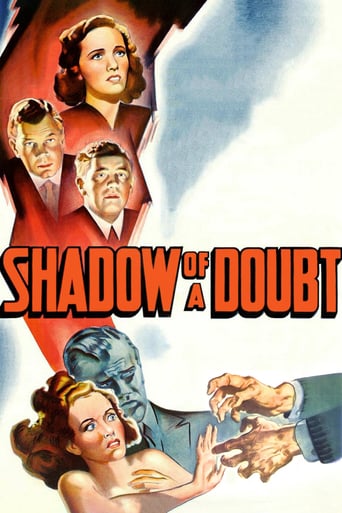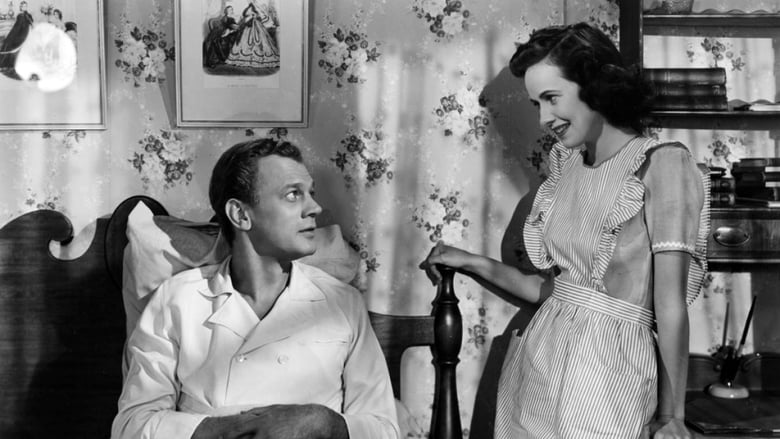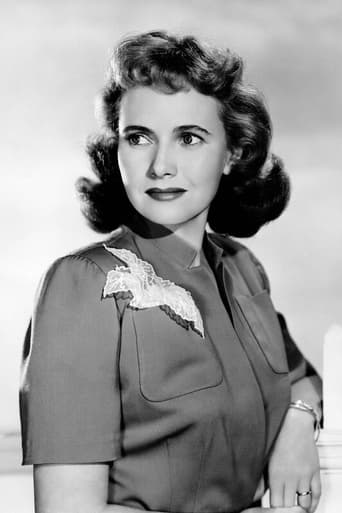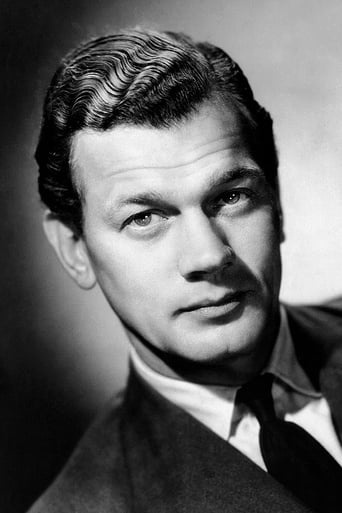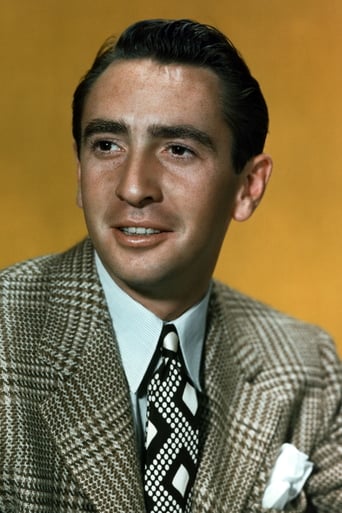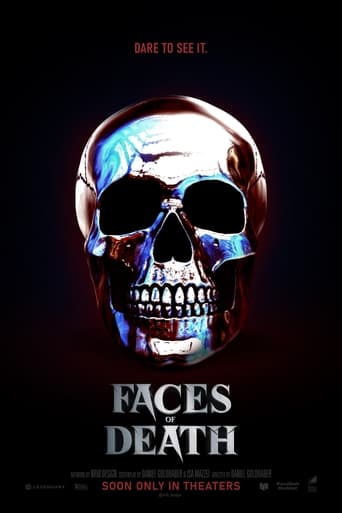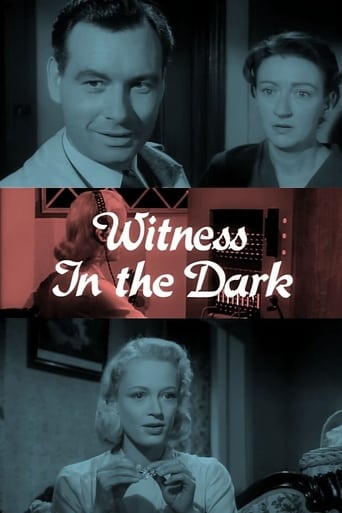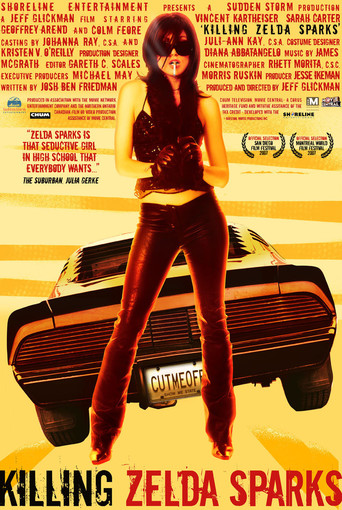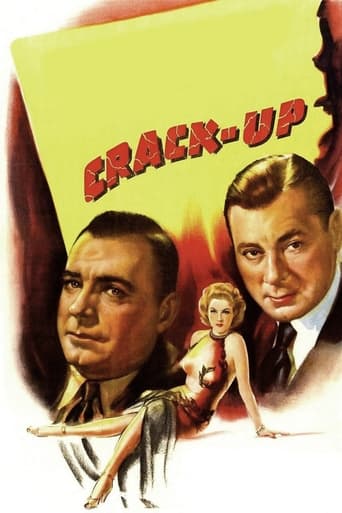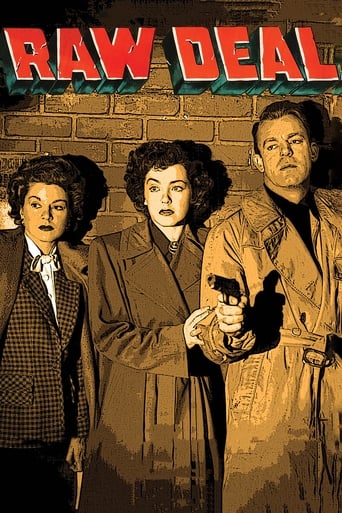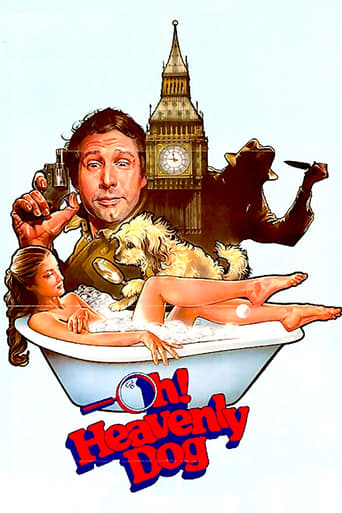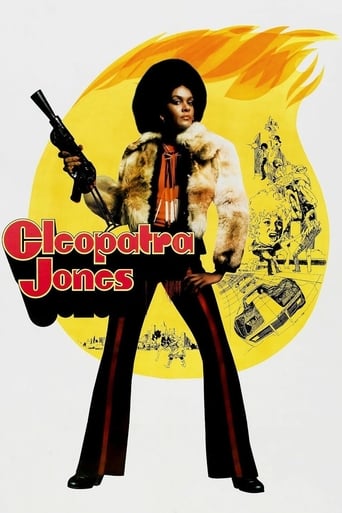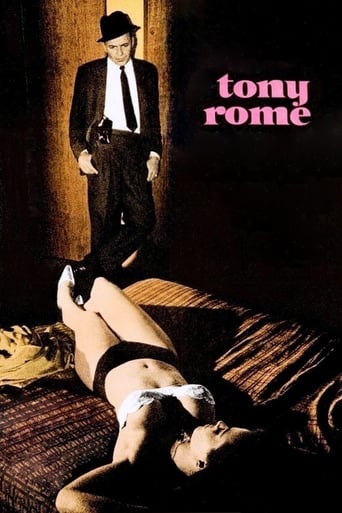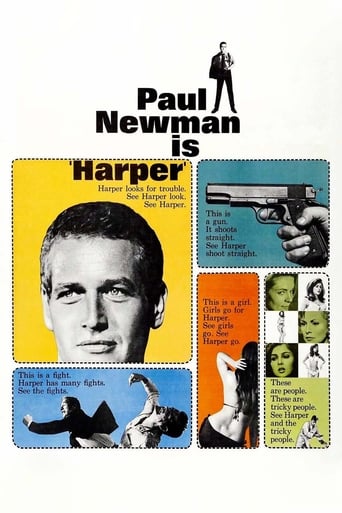Shadow of a Doubt (1943)
Just when Charlotte ‘Charlie’ Newton, is feeling especially frustrated by the lack of excitement in her small town in California, she receives wonderful news: Her uncle and namesake, Charlie Oakley, is coming to visit. However, as secrets about him come to the fore, Charlotte’s admiration turns into suspicion.
Watch Trailer
Cast
Similar titles
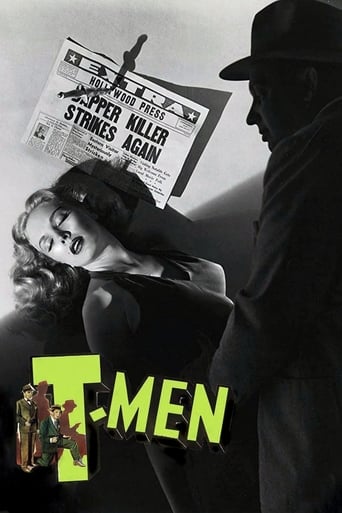
Reviews
I don't have all the words right now but this film is a work of art.
Best movie ever!
Good films always raise compelling questions, whether the format is fiction or documentary fact.
At first rather annoying in its heavy emphasis on reenactments, this movie ultimately proves fascinating, simply because the complicated, highly dramatic tale it tells still almost defies belief.
I've seen just over half of his films (around 25 or 30) so I know my fair share of some of his greatest films, and let me tell you this one sure was another!I noticed from the very start I was already hooked and wanted to know more about this mysterious man we see who is "Uncle Charlie".I have a really bad problem with quite a few of Hitch's films, films like "Topaz","Rebecca", "Marnie", "Spellbound" or even "Notorious" I felt were just way too slow, nothing interesting enough happens throughout to keep you interested, even the ending of those films sort of left me with the thought like "Okay? that's it?".This film grabbed my attention from the very start and kept me until the end, although I will say this though, I thought the first half of the film was greatly superior to the last half, the build up and pace of the first half felt like it was setting up for maybe a bit of a quicker more larger event in the last half I suppose, either way I did find myself feeling like the movie was beginning to feel draggy towards the end, that is the one and only problem which keeps this movie from being a perfect 10 out of 10. The film would be seriously perfect if it was around 1 Hour and 20 minutes instead of almost 2 hours long (lots of things in the last half could have been cut down) The dialogue was great as well, most from what "Uncle Charlie" has to say. One other final thing I would like to say is that the CAMERA WORK is PHENOMENAL, there are tons of interesting shots and they all feel like a lot of thought was put into each angle and shot, editing was great, and you really get a sense of what it was like back in those days.This is definitely in Hitchcock's top 10 films IMO, but films like Vertigo, Psycho, Rear Window, Dial M For Murder are all better than this one for sure
This is just about a half-step down from his usual films, not in his specific directing but choice of a story and just film as a whole. As always, there's a great deal of mystery insidiously woven throughout the first act that immediately catches the viewer's utmost interest, and the development makes for a smooth watch. The casting is very good, with notably the at times breathtakingly beautiful and natural Teresa Wright as the very strong and bold female lead, and Cotten who plays his role of the perpetually suspect and obscure uncle just right. There's enough to go around to fill up the film convincingly, but the ending feels something of a rush. As very often with Hitchcock films, the ending is the least subtle part of the picture, something of a more ordinary finishing point than brought to expect - which definitely dents a good, sometimes great effort's worth. Almost like the film's had enough of itself and just wants to move on to the next.Pretty good film, definitely a smooth viewing and a few things to look forward to, just perhaps that last part. 7.5/10
"Shadow of a Doubt" was pivotal in Hitchcock's career as the first movie set in directors' Promised Land: America. And if I'm not sure that he held the film in higher regards than some later classics, I'm pretty sure though that the film was a sentimental favorite. And the word 'sentimental' is crucial as the underlying theme of "Shadow of a Doubt", is "when idealization meets deception" and we idealize a big deal in the name of sentimentality.So sentimentality was a prevalent element of Hitch' premiere in America, he wanted the most American-looking location, one you couldn't tell in which state it was. The privilege went to Santa Rosa, a postcard little town of old fashion charm, with an obligatory library, train station, bank, all in one copy. Townspeople know each other by first name, from the priest to the brave overweight traffic cop. The town also neighbored some famous Californian vineyards, which made the shooting all the more interesting for Hitch and all.If the sleepy little town could appeal to any outsider in quest of peace, some insiders would have a much different opinion. Charlotte, played by the sweet and talented Teresa Wright, nicknamed Charlie after her mother's brother but will be called Charlotte in this review for clarity's sake, doesn't feel exactly like a fish in water. When we first see her, she's lying on her bed, wondering how she can get off this unbearable heaviness of boredom. And she can't find any supports from her parents played by former co-stars, from "Mrs. Miniver", Henry Travers, a banker, and from "The Little Foxes", Patricia Collinge as the devoted housewife.All these faces fit together and the actors are so natural we really believe this is a family, but there are many hints suggesting that each member tries to escape from a suffocating routine The mother is mentally rooted in the past and mourns her brother, Charlie whose absence had a profound effect on her well-being. The father shares a strange hobby with his friend Herb (Hume Cronyn in his debut) imagining the perfect crime as if they were about to write a crime novel. The precocious little sister Ann, is a bookworm, as indicated by her glasses, and doesn't indulge to child's activities, and the youngest child Roger enjoys counting steps between places. Unrealistic? I used to do the same thing as a child.As usual, Hitch manages to create eccentric yet realistic characters, and Charlotte, the one person who had her feet on the ground decides to invite her Uncle. She learns that Uncle Charlie is coming to pay a visit after many years of absence. And it's not much the news that delights Charlotte, but the fact that she and her uncle had the same idea, she calls it telepathy, we call it idealization. We all feel a deep connection with the people we love and will find signs everywhere. And sneaky Hitch provides us the same signs, so we can also feel that bond. Narrative-wise, it's excellent because in a film where the bad guy is the main protagonist, Hitch knows we have to root for him a little, he manages to create the empathy by giving similar feelings to the good characters.So Hitchcock (who's all about signs) give us the ultimate sign of a deep bond between Charlie and Charlotte. When we first see Uncle Charlie, played by the great Joseph Cotton, he's also lying in a bed in some lousy place in New Jersey, just like his niece. But obviously, he has darker motives as suggested by the cops who try to arrest him. Uncle Charlie is a fugitive, a criminal whose record will be revealed progressively, but we're already ahead of Charlotte and her family. And the first visual sings of the titular shadow seem to be conveyed by the heavy cloud of gray smokes coming from the train, when Uncle Charlie arrives. Hitchcock, loved contrasts and the idea of sleazy evil coming to disturb the quiet peaceful town, something so impossible that no one would accept it, not even Charlotte, maybe not even us.It's a strange feeling because as soon as he comes, Uncle Charlie is like the touchstone of the family, such a natural charismatic character that we somewhat want the happiness to be maintained to this status quo. However, Uncle Charlie constantly throws hints to the face of Charlotte, and her resistance to face the truth takes its source from her admiration toward uncle. Before being a psychological battle, it's an internal one, and the whole first act is your typical Hitchcockian quest of a mysterious identity. The film gets actually more interesting once Charlotte knows, and has to digest the contrast between her idealization of her Uncle and what he really is, and it's such a startling contrast that she knows her mother mustn't know the secret, because it would kill her, it becomes a life-and-death situation.It also allows to cops not to arrest him in the house and so begins a psychological battle between the man-who-wants-to-stay and the girl-who-wants-him-to-leave and it naturally culminates with murder impulses from both sides. And while the story leads us to its thrilling resolution, we discover deeper and darker aspects of the protagonists' personalities, confronting two visions of life: cheerful and optimistic and twisted and misanthropist, and Teresa Wright is as convincing in the positive as in the negative emotions. And while the good triumphs over the evil, she's slightly contaminated by her Uncle's spirit, and might have her own shadow of a doubt regarding the goodness of human nature.While a masterpiece in its own terms, the film has a few little flaws but Hitch, and even us, viewers, keep on idealizing "Shadow of a Doubt", just like the family idealized Uncle Charlie, ignoring his darkest side. It's part of human nature. The question is, do we idealize the film better for its good or for its dark side?
I wonder what sort of film Shadow of a Doubt might be if Hitchock had cut that opening sequence with Cotten dodging the two agents and whisking away to a safer place. Sure, it does establish his boldness and knack for disappearing right in front of our very eyes (it helps that they do not know what he looks like so he can walk right by them) but it also establishes for a fact that Uncle Charlie is hiding something, and somewhat undermines the slow process of discovery that Charlotte has to go through. Surely the absence of it would make the best scene of the film even better. We overhear Joseph and Herbie musing as they always do, and they mention that the Merry Widow Murderer is dead. Then Cotten climbs the stairs, the slowly and deliberately turns back to give a pointed, menacing look back at Charlie in the sliver of sunlight in the doorstep. The soundtrack climaxes, and in that moment both characters know exactly where the real murderer, and so does the audience. It's a stunning moment of silent tension, mainly because neither can directly admit what they know, and everything else afterwards is merely a formality. The final 'fight' is a little silly now, and the forced romance with Detective Graham seems as though they plucked the nearest available male to give a little comfort for the young Charlie.The two Charlies are certainly a shining light here. Wright does not nearly resemble the teenager she plays (she was in her mid 20s) but by all means is radiant; she has the kind of vivacity and youthful idealism from the get go that Hitchcock ladies aren't often armed with and is the shining light from the start. She rises from the cosy domesticity of the small town as if she were totally aware that there is no other way to kickstart the movie than to get Uncle Charlie into the frame, and then beams constantly at how what a mysterious and imposing character he is. She has the all the imperative here. Opposing her is the sharp- eyed Cotten, who juggles the appearance of a family man rather well, only cracking once to give a frightful monologue. The clash between the leading pair makes the movie a worthwhile study in tension; we can see Hitchcock winking from every scene as Charlie goes closer and closer to discovering the truth, even as she chalks it all up the the excitement of her uncle's enigmatic lifestyle. When she first receives a murdered victim's watch, they key light flashes a little glint in her eye, but it's not yet the moment of discovery - she is merely overjoyed at such a cool present from such a cool uncle. A shake up indeed. What the intro does allow is for all these Hitchock nods at the source of the criminal contrasted with Charlie's initial obliviousness; the way she wonders how they just happen to be the 'average' family chosen for a nation-wide survey, the way Emma shrieks at the visitors to not take pictures of the ugly scenery, and the running dialogue of Joseph and Herbie as crime enthusiasts who endlessly speculate on the perfect murder. First it is a harmless hobby. Later it inserts a grim subtext until Charlie cannot bear it any longer. It's the classical build-up of dramatic irony, and Hitchock subverts his own tendencies; Wright closes the door and leans against it suggestively, and then Cotten grasps her hands roughly as he snatches the newspaper fragment, and for a moment, the pose is like two lovers about to embrace and kiss. But by foregoing that convention dynamic we have something a lot more interesting.
